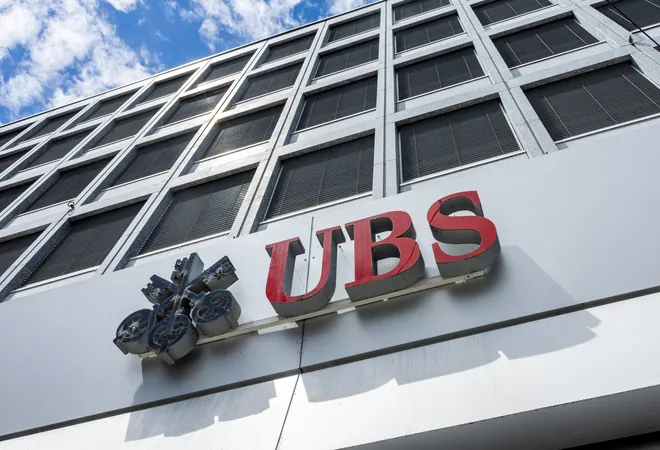
Hong Kong's Tax Concessions Set to Transform City into Premier Family Office Destination
2024-12-29
Author: Ming
Introduction
Hong Kong is gearing up to solidify its position as a leading hub for family offices, thanks to new tax concessions aimed at attracting high-net-worth individuals and their investment vehicles. Major financial institutions like UBS, JPMorgan, and BNP Paribas are at the forefront of this movement, eager to leverage the opportunity.
Policy Changes
In his policy address in October, Chief Executive John Lee Ka-chiu unveiled plans to expand tax exemptions for single-family offices. This initiative is currently under consultation with industry stakeholders before it becomes law. The changes are poised to cover a broader array of asset classes, including loans, private credit investments, and particularly, virtual assets.
Industry Reactions
Anthony Lau, the Hong Kong head of Deloitte Private, expressed excitement about these developments, noting that extending tax concessions to virtual assets is a significant advantage that sets Hong Kong apart from Singapore, where such allowances are not specifically detailed. Lau argues that this move positions Hong Kong as a trailblazer in the family office sector.
Koh Liang Heong of UBS echoed this sentiment, emphasizing that the attractive tax regime would encourage wealthy families to establish family offices in the city. Currently, there are over 2,700 single-family offices operating in Hong Kong, a figure supported by Deloitte's reports.
Current Tax Incentives
While Hong Kong rolled out tax incentives for family offices in May 2023, those incentives primarily targeted traditional assets like stocks and bonds. However, given its geographic proximity to mainland China and a resilient wealth creation environment, the city remains a magnet for affluent families. Koh highlighted that despite economic slowdowns, innovation and wealth generation in China continue to thrive, fueled in part by government stimulus efforts.
Potential for Further Incentives
Deloitte’s Lau suggested that the tax incentives could further be enriched by including exemptions for art and collectibles. This is increasingly pertinent as Hong Kong emerged as a leading auction hub, trailing only New York in combined sales from major auction houses Christie's, Sotheby's, and Phillips.
Philanthropy and Social Responsibility
Notably, Melissa Fung from Deloitte China pointed out that the trend of family offices establishing charitable foundations is gaining momentum, reflecting a growing interest in social responsibility among wealthy individuals.
Regulatory Environment and Future Prospects
Alex Wolf of JPMorgan remarked on the importance of a robust regulatory environment, which he believes is a key driver for overseas clients looking to set up family offices in Hong Kong. Vincent Lecomte from BNP Paribas praised the city’s family office ecosystem, predicting abundant opportunities for expansion in Asia, particularly in the wake of their recent acquisition of HSBC's private banking operations in Germany.
Additionally, Manulife Hong Kong's CEO Patrick Graham emphasized the rapid growth of the high-net-worth population in Asia, particularly within China and Hong Kong. He envisions Hong Kong becoming a superconnector in the Greater Bay Area, a prime destination for affluent individuals seeking tailored insurance and wealth management solutions.
Conclusion
As the landscape for family offices in Hong Kong evolves, one thing is clear: the city is poised to become an unprecedented magnet for wealth and investment opportunities. This strategic move towards enhancing its family office infrastructure could redefine the future of private wealth management in Asia. Stay tuned as the developments unfold!




 Brasil (PT)
Brasil (PT)
 Canada (EN)
Canada (EN)
 Chile (ES)
Chile (ES)
 Česko (CS)
Česko (CS)
 대한민국 (KO)
대한민국 (KO)
 España (ES)
España (ES)
 France (FR)
France (FR)
 Hong Kong (EN)
Hong Kong (EN)
 Italia (IT)
Italia (IT)
 日本 (JA)
日本 (JA)
 Magyarország (HU)
Magyarország (HU)
 Norge (NO)
Norge (NO)
 Polska (PL)
Polska (PL)
 Schweiz (DE)
Schweiz (DE)
 Singapore (EN)
Singapore (EN)
 Sverige (SV)
Sverige (SV)
 Suomi (FI)
Suomi (FI)
 Türkiye (TR)
Türkiye (TR)
 الإمارات العربية المتحدة (AR)
الإمارات العربية المتحدة (AR)